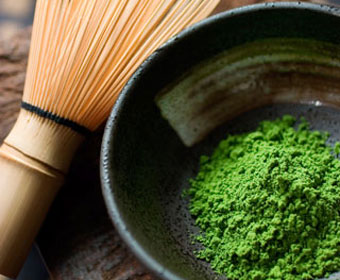
Matcha Buyer Beware
If you’ve shopped around for matcha lately, you know there’s a good deal of hype out there over matcha’s health benefits. We say “hype” because much of it is being touted by marketers eager to cash in on matcha’s ancient reputation and newfound popularity.
Here’s a little backgrounder …
June 2006 was matcha tea’s watershed moment in North America. That’s when a Whole Foods retailer in Vancouver, Canada quietly sold over $5,000 worth of a single brand of matcha in a matter of days.
When word got out, Whole Foods retailers up and down the west coast started hollering for matcha tea and its popularity has been growing ever since.
Dozens of legitimate new matcha brands began to appear in stores and online. And, not surprisingly, opportunistic hucksters climbed out of the shadows to join them. There’s a reason we say “matcha buyer beware.”
Science vs Opinion
While it’s true matcha tea offers some great health benefits very few scientific studies have been devoted entirely to matcha. In fact, most of the evidence trotted out by retailers is anecdotal — the opinion of matcha tea drinkers.
That’s why matcha marketers have adopted the science devoted to regular green tea, which actually makes sense. Green tea and matcha tea contain the same healthy antioxidants and amino acids. The difference, of course, is that matcha tea in its powdered form contains more of them.
Overall, it’s been established that one (1) cup of high-quality matcha tea packs the same punch as 7 – 10 cups of regular green tea. For health conscious consumers, that one cup of matcha is a lot more convenient, practical and affordable.
Matcha Buyer Beware
This is where things get a little dicey.
A ton of retailers claim matcha tea contains 137x more antioxidants than regular green tea. That’s simply not true. The study they’re quoting actually said matcha tea contains 137x more antioxidants than one very specific brand of green tea and just 3x more than all the others.
The other claim to be wary of involves weight loss. According to a study by the American Journal of Clinical Nutrition, the catechins in matcha can boost your metabolism during moderate exercise thus enhancing weight loss. But matcha alone won’t magically melt away those unwanted pounds, you still have to get up off the couch … rats!
Misleading Labels
Watch out for product labels. Some are just totally bogus. The trick is knowing which ones you can trust. That’s why we recommend you read the label real carefully. Like all packaged food companies, tea sellers are required to list their ingredients on the outside.
Good quality matcha from Japan contains nothing but matcha tea powder. Lower quality matcha teas commonly contain inexpensive fillers like rice solids, sugar and other substances. Ingredients other than matcha are a 100% sure sign you’re not getting the real deal.
Matcha Buyers Guide
Matcha history is rooted in an ancient Japanese tradition of purity and respect. To suddenly find itself in a “buyer beware” situation just defeats matcha’s good energy. Here are seven (7) things to remember to ensure you’re getting the best for your matcha money:
- Matcha is only matcha in its powdered form.
- Matcha is not matcha if it’s a loose leaf or in a teabag. It is never “raw.”
- Matcha is not “powdered sencha” or “powdered green tea.”
- If the label uses words like “premium” or “hand-picked” then lists some kind of sugar ingredient, run for the hills.
- Good quality matcha retails for about $30 USD for a 30-gram tin; about $1 per gram.
- If the matcha is sweetened it will be low grade and should be priced around 10 cents per gram.
- Good quality matcha powder is vibrant green and finely ground with a fresh grassy aroma.
Questions or comments? Feel free to drop us a line anytime: callio@mymatchalife.com.